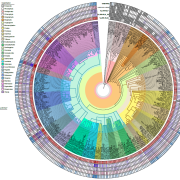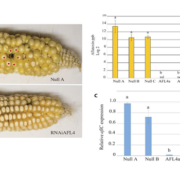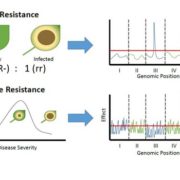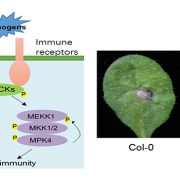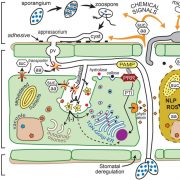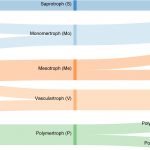Fungal community assembly in drought-stressed sorghum shows stochasticity, selection, and universal ecological dynamics (Nature Comms)
 Previously, crop-associated mycobiomes were thought to assemble largely under the control of deterministic selection by the plant host with limited influence from drift. This study by Gao et al., highlights the important role of stochastic processes in fungal community assembly, particularly in the hosts’ early developmental stages and following drought stress. They planted 18 plots of sorghum in a random block design of two host genotypes and three treatments (control, pre-flowering drought, and post-flowering drought) in triplicate and sampled the mycobiome of each of four plant compartments (leaf, root, rhizosphere, and soil) daily using the fungal rDNA ITS2 region, fungal 18S qPCR, and the fungal transcriptome. They hypothesized that drift would most strongly influence community assembly when 1) communities are small and 2) have recently been relieved of selection caused by a stressful event, in this case drought. They found a negative correlation between fungal community size and stochasticity in assembly, supporting H1, but no increase in stochasticity following drought relief, rejecting H2. Understanding the dynamics of fungal mycobiome assembly especially while under drought stress is important in a world where crops will increasingly be threatened by climate change. (Summary by Rebecca Hayes) Nature Comms. 10.1038/s41467-019-13913-9
Previously, crop-associated mycobiomes were thought to assemble largely under the control of deterministic selection by the plant host with limited influence from drift. This study by Gao et al., highlights the important role of stochastic processes in fungal community assembly, particularly in the hosts’ early developmental stages and following drought stress. They planted 18 plots of sorghum in a random block design of two host genotypes and three treatments (control, pre-flowering drought, and post-flowering drought) in triplicate and sampled the mycobiome of each of four plant compartments (leaf, root, rhizosphere, and soil) daily using the fungal rDNA ITS2 region, fungal 18S qPCR, and the fungal transcriptome. They hypothesized that drift would most strongly influence community assembly when 1) communities are small and 2) have recently been relieved of selection caused by a stressful event, in this case drought. They found a negative correlation between fungal community size and stochasticity in assembly, supporting H1, but no increase in stochasticity following drought relief, rejecting H2. Understanding the dynamics of fungal mycobiome assembly especially while under drought stress is important in a world where crops will increasingly be threatened by climate change. (Summary by Rebecca Hayes) Nature Comms. 10.1038/s41467-019-13913-9


